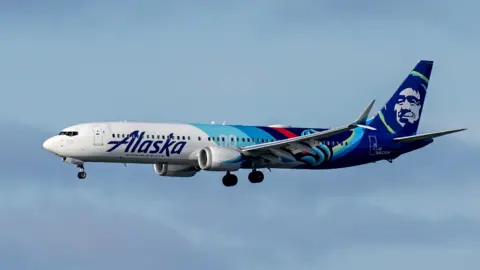The US federal government has shut down after Republican and Democratic lawmakers failed to resolve a budget standoff. The impasse affects the funding for government operations through October and beyond, poised to cause widespread disruption for Americans in areas ranging from air travel to zoo visits.
The political gridlock is expected to put 40% of the federal workforce – about 800,000 people – on unpaid leave. Here's how its impact will be felt across the country.
Your next flight
A federal shutdown will hit flyers in various ways, potentially leading to long security queues and delays caused by unpaid air traffic controllers choosing to stay home rather than work for free. Air traffic control and Transportation Safety Administration (TSA) workers are considered essential and will continue working during the shutdown but will not be paid until it ends. This situation could mirror the last shutdown, where increased sick calls led to airport delays. Those planning to travel abroad may face longer processing times for travel documents at US passport agencies.
No work - or pay - for federal workers
Federal employees are expected to be heavily impacted, as they will not receive paychecks while the shutdown continues. Some may take second jobs while others stay home, although non-essential employees have received back pay retroactively after past shutdowns. Agencies like the CDC and NIH could furlough many workers, affecting ongoing research. President Trump has indicated that shutdowns could lead to job cuts and service reductions targeting Democratic priorities. Federal contractors will also face work disruptions, as they historically do not receive back pay.
National Parks with no staff
National Parks and Forests will close to visitors since rangers are expected to stay home. Past practices have seen parks left open without staff, leading to vandalism and misuse of resources. Advocacy groups have urged that parks remain fully closed during shutdowns to prevent damage.
Visit to the zoo
While the Smithsonian's museums, including the National Zoo, remain open initially, the zoo staff will cut non-essential services, including popular animal webcams, while ensuring animals are cared for. Funding from prior fiscal years allows for this temporary continuation.
Health care for the elderly and poor
Medicare and Medicaid will continue, but there may be delays. Disaster relief services can proceed, yet delays in the National Flood Insurance Program could affect housing transactions. WIC’s funding is also at risk of depletion.





















